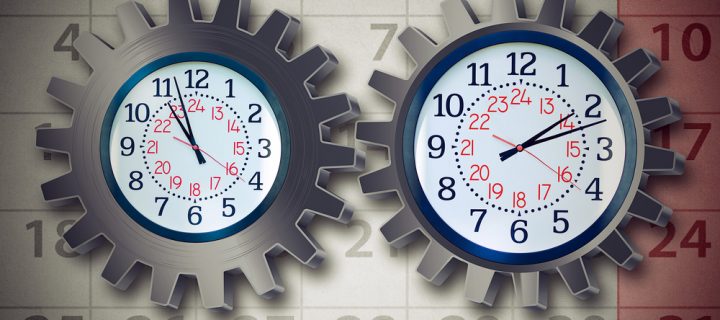Shift work can lead to both earlier and later menopause.
It’s difficult to pin down the true origins of the term “graveyard shift”. Long used to describe work done between the hours of midnight and 8AM, the words themselves provide some simple clues. But there’s nothing conclusive. It could be that graves were once dug only at night time in some places, or that security was once hired to patrol graveyards to prevent the robbing of graves, igniting the use of the term. Finding this concrete evidence, however, is hard to do.
What is easier to pinpoint is information related to the health of people who have to work these challenging hours. It’s estimated that anywhere between 2% and 4% of all Americans start their work between the hours of 6PM and midnight. And up to 20% of people working in North America and Europe adhere to some sort of alternating shifts or abnormal schedule.
It’s tough. When most of us are curling up under warm blankets to go to sleep, some are grabbing their first coffee. It’s the start of another long day, with sunrise far off.
Is it worth the extra pay? Since natural human rhythms guide your body to feel awake during the day and sleepy at night, working nocturnal hours can make it difficult for some people to get enough sleep. But the effects of the graveyard shift go further than this. Working night hours can cause a whole host of problems. From heart arrhythmias to increased rates of stroke and cancer, the graveyard shift is taxing.
Now researchers are saying working shifts can even delay menopause in women. Here’s what they found.
Working rotating shifts moves menopause
A study published in the journal of The North American Menopause Society (NAMS) found women who work shift work, which can include night shifts and rotating shift work, experience later and earlier menopause.
The study looked at secondary data analyses of almost 3,700 Canadian working premenopausal women. Researchers say some significant relationships were discovered.
Related: Beauty products linked to early menopause
It was found that women who are working rotating shifts are more likely to experience a delayed onset of menopause. In contrast, women working night shifts tend to experience menopause at an earlier age.
Scientists say they suspect shift work and night work affect your circadian rhythms, which is in turn leading to shifted menopause. This hasn’t been proven, however, and further study is required.
Why is this of concern?
There is a problem with shift work affecting the onset of menopause. Prior research has shown that women who experience earlier than normal, or later than normal, menopause are at a higher risk of developing certain diseases. They also have a higher mortality rate. It adds up to bad news.
What else can affect the timing of menopause?
Women typically experience their last period sometime between the ages of 45 and 55. Officially speaking, natural menopause is the moment in time about 12 months after a woman’s last period. So, if you have gone for a year without having your period and you’re of this age, you are most often considered to be experiencing menopause.
Some other things are known to affect the age at which you naturally stop getting your period. These include smoking, parity (giving birth), and socio economic status. Studies have shown women of lower socioeconomic status tend to experience earlier menopause.
Are you working shift work? Check out these twenty tips to help guard your health. It’s worth it!
photo credits: pathdoc/Shutterstock.com












